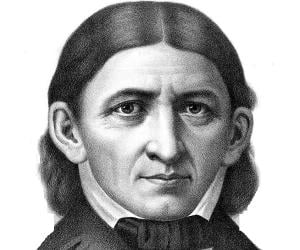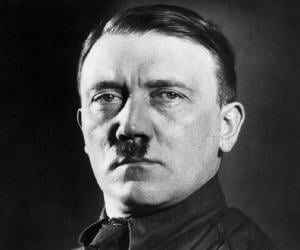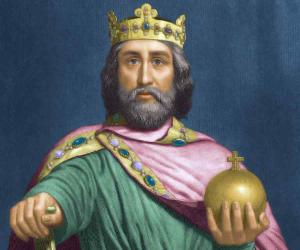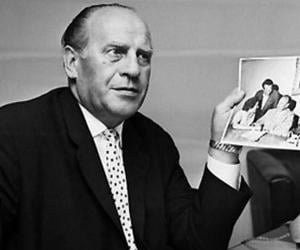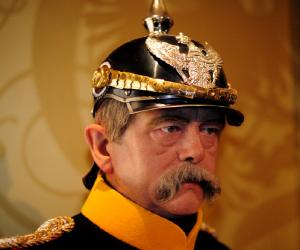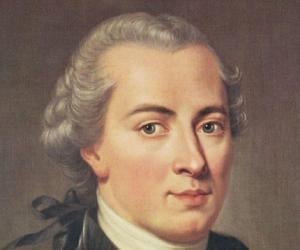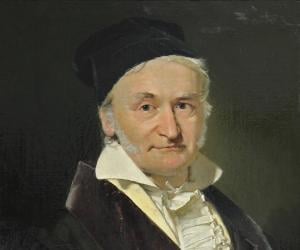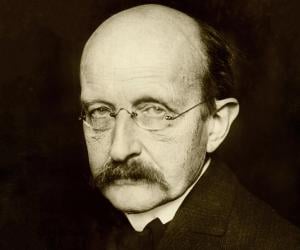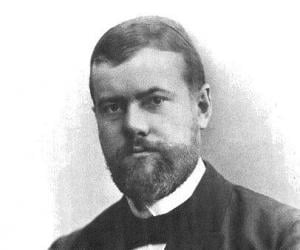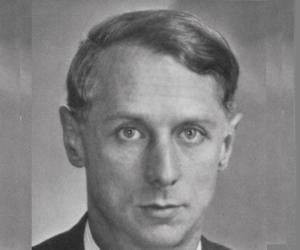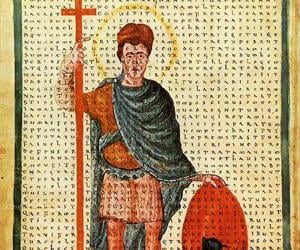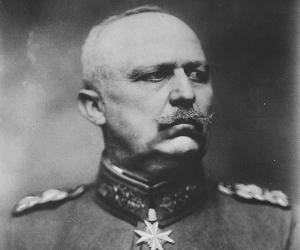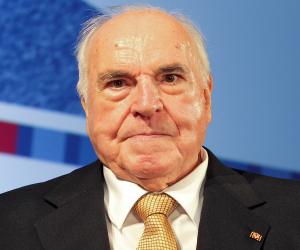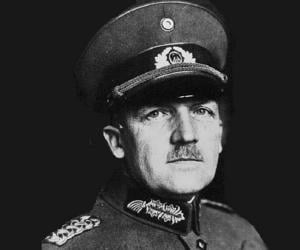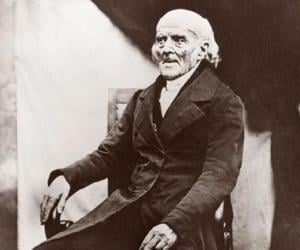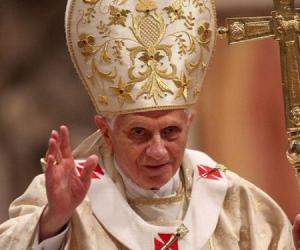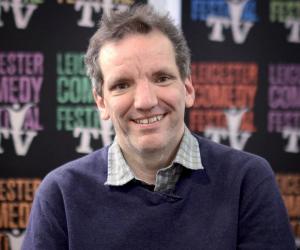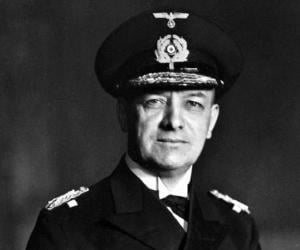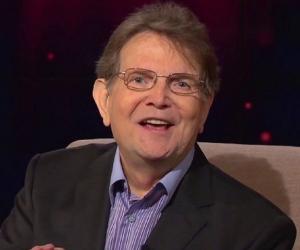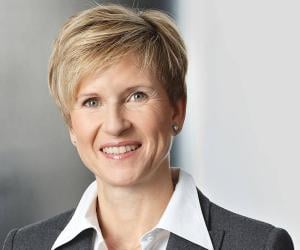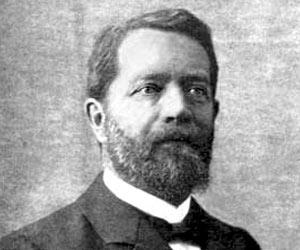One of the most powerful leaders of the 20th century, Adolf Hitler was a German dicator whose policies started the WWII that resulted in the death of millions of people. He had a visceral hatred for Jews and during his regime nearly six million Jews were killed in Holocaust.
Michael Fassbender is a critically-acclaimed Irish-German actor best known for playing a sex addict in the psychological erotic drama film Shame. Apart from being an actor, Michael is also a well-known racing driver; he started his auto racing career in 2017 and currently races for Proton Competition in the European Le Mans Series.
Also known as Charles the Great, Charlemagne ruled as the king of the Franks, king of the Lombards, and emperor of the Romans at different time periods. Not surprisingly, he had a major impact during the Early Middle Ages as he went about uniting the majority of central and western Europe, for which he is called the Father of Europe.
Oskar Schindler was a German industrialist who displayed extraordinary dedication and courage to save the lives of 1,200 Jews during the Holocaust. Oskar Schindler's act is viewed by many as the kind of act that restores faith in humanity. His inspirational and heart-warming story was adapted into an Oscar-winning film titled Schindler's List.
Immanuel Kant was a German philosopher whose works in fields like aesthetics and metaphysics have made him an important and influential personality in Western philosophy. His views continue to influence contemporary philosophy. Kant has had a major influence on prominent philosophers like Hegel, Schelling, Reinhold, and Fichte. Kant's work on mathematics is cited by Albert Einstein as an early influence.
German mathematician and physicist Carl Friedrich Gauss is remembered for his work in math and science. Known as the Princeps mathematicorum, he laid down tenets such as the Gauss's Law. He had exhibited his talent since an early age and had completed writing Disquisitiones Arithmeticae by 21.
German theoretical physicist Max Planck is remembered for originating the quantum theory of physics, which earned him the 1918 Nobel Prize in Physics. He laid down concepts such as the Planck constant and the Planck postulate. The Kaiser Wilhelm Society was later renamed Max Planck Society in his honor.
Max Weber was a German historian, political economist, jurist, and sociologist. Widely regarded as one of the most influential and important theorists, Weber's ideas had a profound influence on social research and social theory. Although he did not see himself as a sociologist, Weber is often counted among the fathers of sociology alongside Émile Durkheim, Auguste Comte, and Karl Marx.


Alexander Zverev is a German tennis player. He won the 2018 ATP Finals, becoming the youngest champion at the year-end championship in 10 years. Zverev won the gold medal in the singles event at the 2020 Summer Olympics in Tokyo. Alexander Zverev's backhand play is often regarded as one of the best in the game.
Max Ernst was a German painter, graphic artist, sculptor, and poet. A pioneer of the Dada movement, Ernst played an important role in popularizing surrealism during the early-20th century. He is also credited with inventing a couple of techniques, namely frottage and grattage. In 2005, the Max Ernst Museum was opened in his honor in Brühl, Germany.
German military leader Erich Ludendorff gained fame with the victories at Liège and Tannenberg during World War I. He promoted the theory that Marxists, Jews, and Freemasons were responsible for Germany’s defeat in the war. He later became a military theorist, writing books such as The Total War.
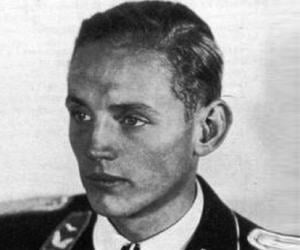
Remembered as the most successful fighter pilot in the history of aerial warfare, Erich Hartmann completed 1,400 missions in his Messerschmitt Bf 109 and shot down 352 Allied planes. Known for his dogfighting strategy, he inspired the popular biography The Blond Knight of Germany and became a flight instructor post-retirement.
German general Kurt von Schleicher was the last Chancellor of the German Reich, or Weimar Republic, before Adolf Hitler came to power. He was killed on Hitler’s orders during the purge called the Night of the Long Knives. He had attempted to form an anti-Hitler coalition called the Querfront.
The founder of homeopathy, Samuel Hahnemann was a qualified physician but disapproved of medical practices such as bloodletting that were used back then. He thus formed his system of alternative medicine. The apathy of his fellow physicians in Leipzig forced him to move first to Köthen and then to Paris.
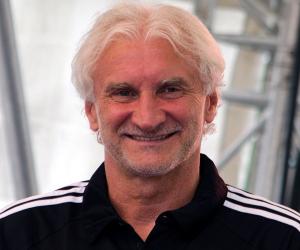

John Kay is a German-born Canadian singer, guitarist, and songwriter. He is credited with co-forming the popular American rock band Steppenwolf for which he served as the lead vocalist. He is also credited with contributing immensely to the success of the band. In 2004, he was inducted into the Canada's Walk of Fame.
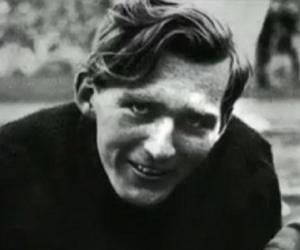
Erich Raeder was a German admiral best remembered for his role in World War II. In 1939, Raeder became the first person since Henning von Holtzendorff to hold the rank of Grand Admiral, the highest possible naval rank. Raeder led the Kriegsmarine, the navy of Nazi Germany, for the first half of the Second World War before resigning in 1943.

Lou Bega became an overnight sensation with the 1999 international chartbuster Mambo No. 5, based on Pérez Prado's 1949 original. Born in Germany, Lou was the son of a Ugandan father and a Sicilian mother. Initially inspired by rap and R&B, he deviated to mambo music after a trip to Miami.
Born in Germany, Pentecostal preacher Reinhard Bonnke had become a born-again Christian at 9. He was known for his self-less preachings in Africa and made his powerful oratory a trademark. As the founder of Christ For All Nations, he was reportedly responsible for over 79 million Christian conversions.


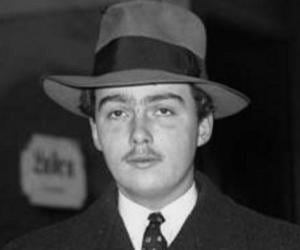
Susanne Klatten is a German businesswoman and billionaire heiress. The daughter of Herbert Werner Quandt, who is credited to have saved BMW from near bankruptcy, Klatten inherited her father's 50.1% stake in chemicals and pharmaceutical manufacturer Altana after his death. According to Forbes magazine, Klatten is the richest woman in Germany.
Felix Christian Klein was a German mathematician and educator remembered for his work on complex analysis, group theory, and non-Euclidean geometry. He is also popular for his work on the relationship between group theory and geometry. He is credited with teaching advanced courses to students like Gregorio Ricci-Curbastro, who went on to become a renowned mathematician in his own right.
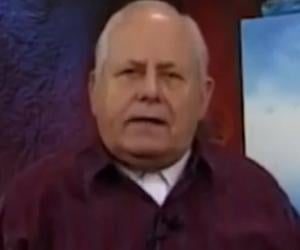
William Alexander was a German painter, television host, and art instructor. He is credited with creating the popular television series, The Magic of Oil Painting, which he hosted from 1974 to 1982 on PBS in the USA. Bill Alexander is also credited with teaching Bob Ross his signature wet-on-wet technique.
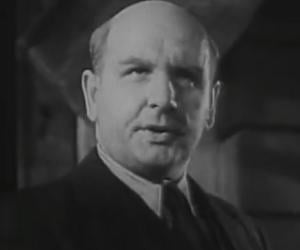

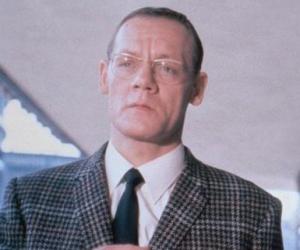



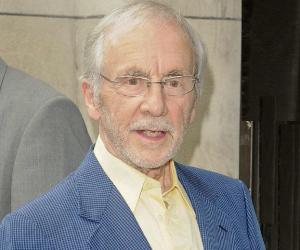

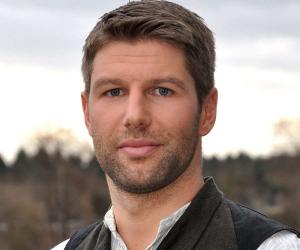


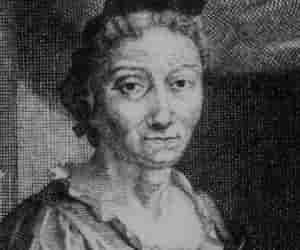
German-born Dutch naturalist and artist Maria Sibylla Merian is remembered for her drawings of insects and plants. She also contributed to the development of entomology through her detailed work on insects and her documentation of a butterfly’s metamorphosis. Metamorphosis Insectorum Surinamensium is her best-known work.


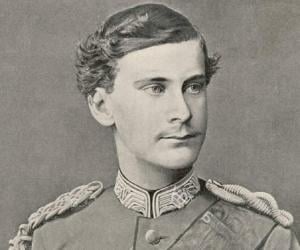
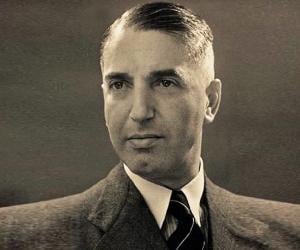
Known as Albert Dussel in Anne Frank’s diary, Fritz Pfeffer was a successful Jewish dentist who had hid along with Anne Frank and her family in the Secret Annex during the Nazi invasion of the Netherlands. Initially deported to Auschwitz-Birkenau, he later died at the Neuengamme concentration camp.
